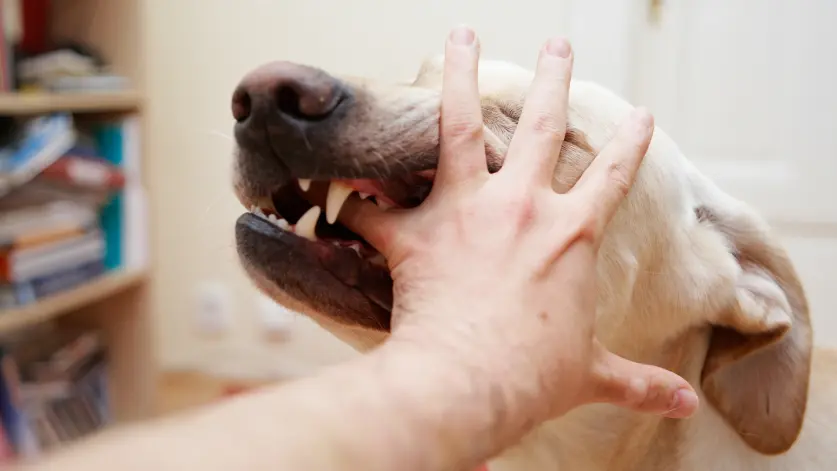
Discover in-depth what happens when a dog has worms, how it affects their health, and more. In ‘How long can a dog have worms before it dies? A dog can have worms for a prolonged period without immediate death, however, it’s important to note that long-term parasitic infestations can cause severe deterioration in a dog’s health. Generally, the severity will depend on the type of worm, volume of infestation, age, and overall health of the dog. Symptoms include vomiting, diarrhea, weight loss, and abnormal behavior. If you observe any of these symptoms in your pet, it is essential to seek treatment immediately. For diagnosis and treatment, consult with a local vet immediately.
Understanding the Duration: How Long Can a Dog Have Worms Before It Dies?
Catering to the needs of pet owners, ‘How Long Can a Dog Have Worms Before It Dies’ offers a comprehensive view into the world of worm infestations in dogs. It presents not only detailed information on the types of worms that can affect your pet but also lists symptoms, treatments, and prevention steps to ensure your dog’s health is never compromised. If left untreated, these parasites can considerably harm your furry friend. Armed with this knowledge, you can better protect your dog from becoming a victim and ensure a prompt and effective response to any potential infestation.
Untreated worm infestations can gradually damage a dog’s kidneys, heart, lungs, and other vital organs, leading to serious complications over time. There are various types of worms that can infect dogs with roundworms, tapeworms, whipworms, and heartworms being the most common. Their symptoms, intensity of damage, and treatment options might vary slightly. Antiparasitic medicines are available and they are generally effective, but the best course of action is prevention. Regular deworming routines along with a healthy lifestyle can keep your pet worm-free. Remember, a happy pet is a healthy pet.
What are the Types of Worms in Dogs?
There are five main types of worms that commonly infest dogs:
- Roundworms: These are the most common intestinal parasites in dogs. Puppies can even be born already carrying roundworms, having contracted the parasites from their mothers.
- Tapeworms: These are usually picked up from ingesting infected fleas, although also from eating infected rodents or contaminated food.
- Whipworms: These live in the large intestine and are harder to diagnose as their eggs don’t show up as easily in a dog’s feces.
- Heartworms: Often deadly, these are spread by mosquitoes and live in the heart and blood vessels of the lungs.
- Hookworms: These particularly nasty parasites live in the small intestine and can cause severe anemia, especially in puppies. Hookworms are primarily contracted from contaminated soil, through ingestion or skin contact.
Always ensure that your pet has a regular vet check-up and maintains good hygiene to prevent these parasitic infestations. Prevention tactics may include creating a safe, disinfected environment, ensuring a balanced diet, applying tick and flea control, and regularly scheduling medications as suggested by your vet. The line of treatment in case of infestation usually involves oral or topical medications but can vary based on the type of worm and severity of the case. Your vet is the best person to advise on the right course of action for your beloved pet’s health.

Symptoms of Worm Infections in Dogs
The symptoms of worm infections in dogs can sometimes be subtle. Also it needs to be promptly identified to avoid severe long-term damage. Here are some usual signs:
- Weight Loss: Even if your dog is eating ravenously, they may lose weight because of worms.
- Vomiting and Diarrhea: Some dogs with worms phlegm up a lot or routinely face loose stools. This dire infection may even make worms visible therein.
- Bad Looking Fur Patch: Dogs fighting worms often lose their shiny fur or face skin breaks or bumps, as they cannot soak in important nourishment.
- Low Energy: Lethargy, or a lack of pizzaz for even activities your pet usually loves, might be seen due to worm infections. It could be due to low blood strength or poor nutrition stolen by the worms.
Treatment of Worm Infections in Dogs
If your dog’s health test gives you any reason to worry, it’s time for a vet’s advice. And for medical fixes:
- Anti-Worm Medicine: This is always a vet’s first pick. The dosage and when or how often you use it depend on what kind and how serious those worms are.
- Get in Front of Parasites: Fight those ticks and fleas regularly to curb any popping up of critters that worsen your dog’s state.
- General Well-being: Feeding good food and having action-packed days not only beats back worms but also gives a speedy recovery route.
- Regular Vet Checkup: Regular exams from your vet can help ensure whether your dog is getting back on track.
Recovery is possible with appropriate either medical treatment or surgeries for severe infestations. For milder cases, supportive measures and periodic checks should be enough to ensure full health over time. Worm infections can be deadly if not detected and treated early, so pay careful attention to your dog’s behavior, appetite, and physical condition. Above all, do not delay seeking out professional vet help once symptoms of worms are identified. They are best equipped to assess, diagnose, and provide the appropriate course of treatment to ensure your pet’s safe, speedy recovery.
And remember: prevention is better than cure. A hapless victim once can swiftly become the happy owner of a healthy, worm-free pet with the aid of regular preventative measures.
How Does a Dog Get Worms?
A dog can get worms in a variety of ways, depending on the type of worm:
- Touching Unsafe Soil or Poop: Dogs can get roundworms, tapeworms, or hookworms if they touch or eat soil, poop, or animals that have these worms.
- From Their Moms: Puppies can catch the worm larvae when they’re still breastfeeding. Puppies can also get infected with worms before they’re even born.
- Through Flea Bites: If dogs swallow a flea that carries tapeworms, they can catch the worms too.
- Eating Infected Meat: If dogs eat meat that isn’t cooked well and has tapeworms, they can get these worms as well.
- Mosquito Bites: Only mosquito bites can get heartworms into your dog. Make a good prevention plan. Avoid issues before they happen by having your pet checked by a vet regularly. Also keeping areas clean, feeding your pet cooked or safely treated meats.
Always remember, the foremost combat against ‘how long can a dog have worms before it dies’ is to adopt a preventative strategy. By eradicating conditions favorable for worms and eliminating sources of infection, you ensure the greatest protection for your cherished pet. Key steps in your pet’s care include regular veterinary check-ups and appropriate vaccinations. It’s also crucial to maintain cleanliness in the animal’s living environments and serve properly cooked or treated meals.
The Life Cycle of Intestinal Worms in Dogs
Understanding the full lifecycle of worms can assist in both detecting an infestation and preventing its replication.
- Eggs/Larvae Stage: Worms lay eggs or produce larvae that can end up in a dog’s poop. Depending on the worm, this can happen inside or outside of the dog. The eggs and larvae are tough and can handle warm, damp environments well.
- Dog Eats Eggs/Larvae: A dog can accidentally eat these eggs or larvae if they come into contact with contaminated things like soil, rats, or infected fleas and mosquitoes.
- Growth Inside the Dog: Once inside the dog, these eggs or larvae grow and mature. They can end up settling and growing in different areas of a dog’s body like the stomach, intestines, or even the heart and lungs, depending on the type of worm.
- Reproduction Cycle: Most kinds of worms will lay eggs or create larvae at some point in their lives while inside a dog. The mature worm lays eggs, these eggs exit the dog’s body through its poop and the total process starts all over again.
By understanding the lifecycle, you can understand when and how your pet may become infected, which aids in preventing infections to start with. Maintaining vigilance is crucial, especially if your pet has been affected previously. Regular and adequate treatment is essential for recovery.
What Are the Signs and Symptoms of Worms in Dogs?
The symptoms can vary but generally are similar for most types of worms. Attention should be paid to any alteration in behavior or any physical changes. Here are the most common signs that your dog might have worms:
Increased Hunger: Worms snack on your dog’s food intake, which can make your dog feel hungry more often.
Abdominal Pain: Curling of the belly or frequent belly scratching can suggest worms, especially hookworms, are causing discomfort.
Bottom Itching or Dragging: Dogs often scoot or rub their rear on the ground if they’re bothered by worms.
Blood in Poop or Visible Worms: You may spot worms or blood in your dog’s poop.
Diagnosis and Treatment to Ensure Dogs Live Healthy Lives
If you notice any symptoms of worm infestation in your dog, you should promptly visit a veterinarian for an accurate diagnosis. The vet will determine the type and severity of the infestation by observing clinical signs, examining stool samples, conducting blood tests, and perhaps using ultrasound or X-ray techniques as necessary.
Treatment will vary relying on the type of worm your pet has contracted:
- Roundworms and Hookworms:
Oral medication will most likely prescribe for such infestations and aims at killing adult worms within the nervous system alimenting channel. For complete eradication of the infestation, it’s often recommended to administer medication in two phases. After a brief pause following the initial treatment, you should administer a subsequent dose to the pet.
- Tapeworms:
Specific treatment against such infections exercises the admin of medication such as praziquIn the end, dealing with worms involves understanding, quick reaction, dedication, and a lot of care. It might seem tough, but when done diligently and with love, it results in a healthier pet. Often cleaning all infested areas and regularly disposing of your pet’s feces in a sanitary way is recommended to hinder recontamination.
- Heartworms:
The seriousness of this type of infection necessitates urgent treatment to prevent severe complications, including heart failure. Vets use specialized drugs to eliminate adult parasites and micro-filariae. Throughout treatment, restraining the dog’s exercise is essential for quicker recuperation.
FAQ for How long can a dog live with worms
The longevity of a dog with untreated worms varies. It highly depends on the type of worms, the extent of the infestation, and the overall health of the dog. However, it’s vital to treat any worm infestations immediately to prevent severe health issues and unnecessary discomfort.
The harm caused by worms can start affecting a dog immediately after the infestation takes hold. Over time, this can lead to greater health complications. Symptoms generally start manifesting in more visible ways over many weeks, but they will vary depending on the nature of the worms and the health of the dog.
Death due to untreated worm infestation isn’t usually immediate. Various factors contribute to the fatal outcome of prolonged infestation, including the dog’s condition, infestation intensity, and the dog’s natural resistance. However, untreated worms can cause substantial harm over time and eventually may lead to death if left untreated.
While all worms can cause harm to dogs, heartworms are arguably the most deadly as they often lead to severe cardiac and lung damage if not addressed promptly. Treat all types of worm infestations promptly because they can cause serious harm to a dog’s health.
Yes, the timely detection and correct treatment can reverse the debilitating impact of worm infestations. While the degrees to which health improves can vary in individual cases, most dogs generally show a significant enhancement in their well-being following a correct and successful deworming process.
Maintaining your dog’s overall health ensures they stay worm-free. Providing a balanced diet, exercising regularly, and promoting clean genetics play an instrumental role

Doxycycline for dogs without vet prescription

Best Cat Food for Cats with Feline Herpes | Petvet PetFood

Homemade Probiotics for Cats: Pet Vet Guide

Top 6 Natural antibiotics for guinea pigs | PetVet PetFood Tips

How long can a rabbit go without eating

Doxycycline for dogs without vet prescription

Dog Heartworm Test at Home | PetVet In-Depth Guide

How to Apologize When Your Dog Bites Someone - Vet Tips

How to fix a yard destroyed by dogs | Petvet tips

Doxycycline for dogs without vet prescription

How to keep Rabbits nails short without cutting







